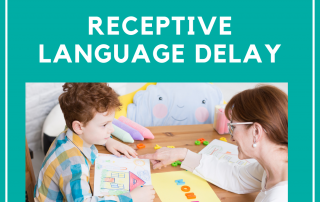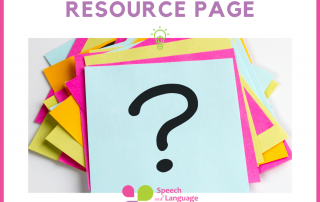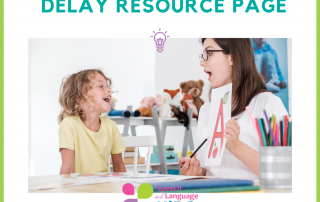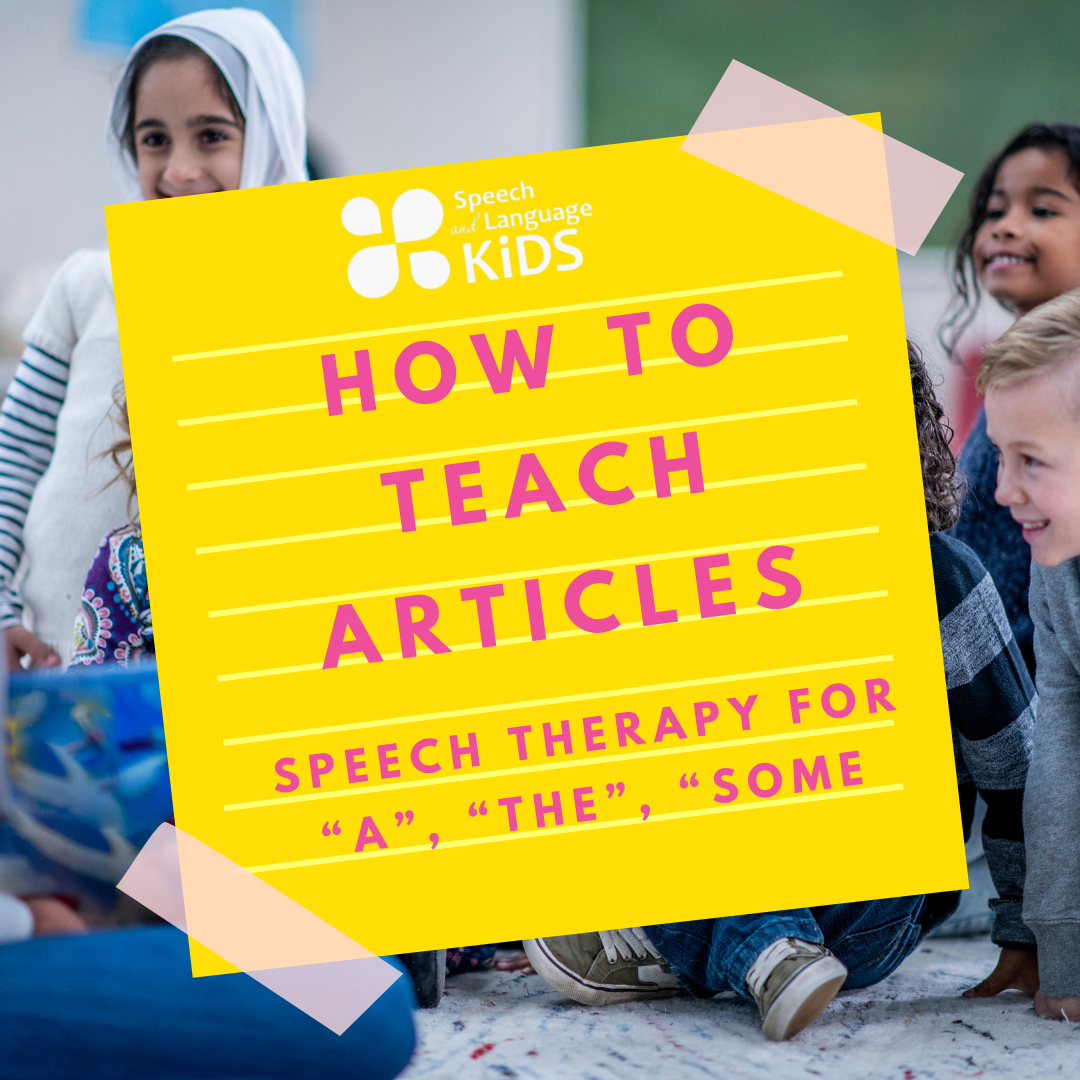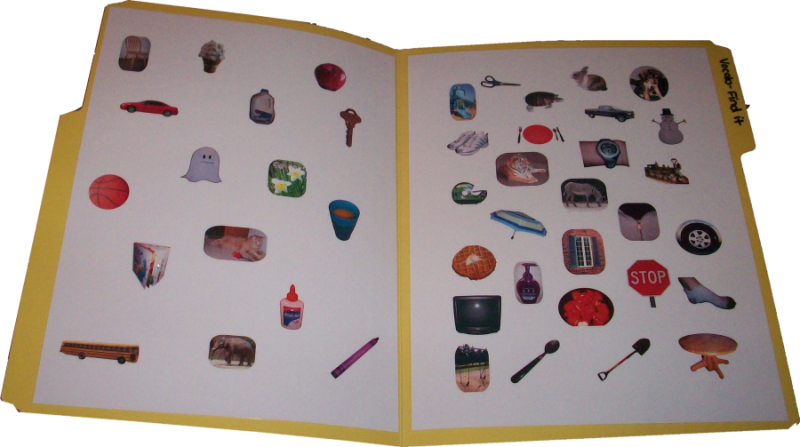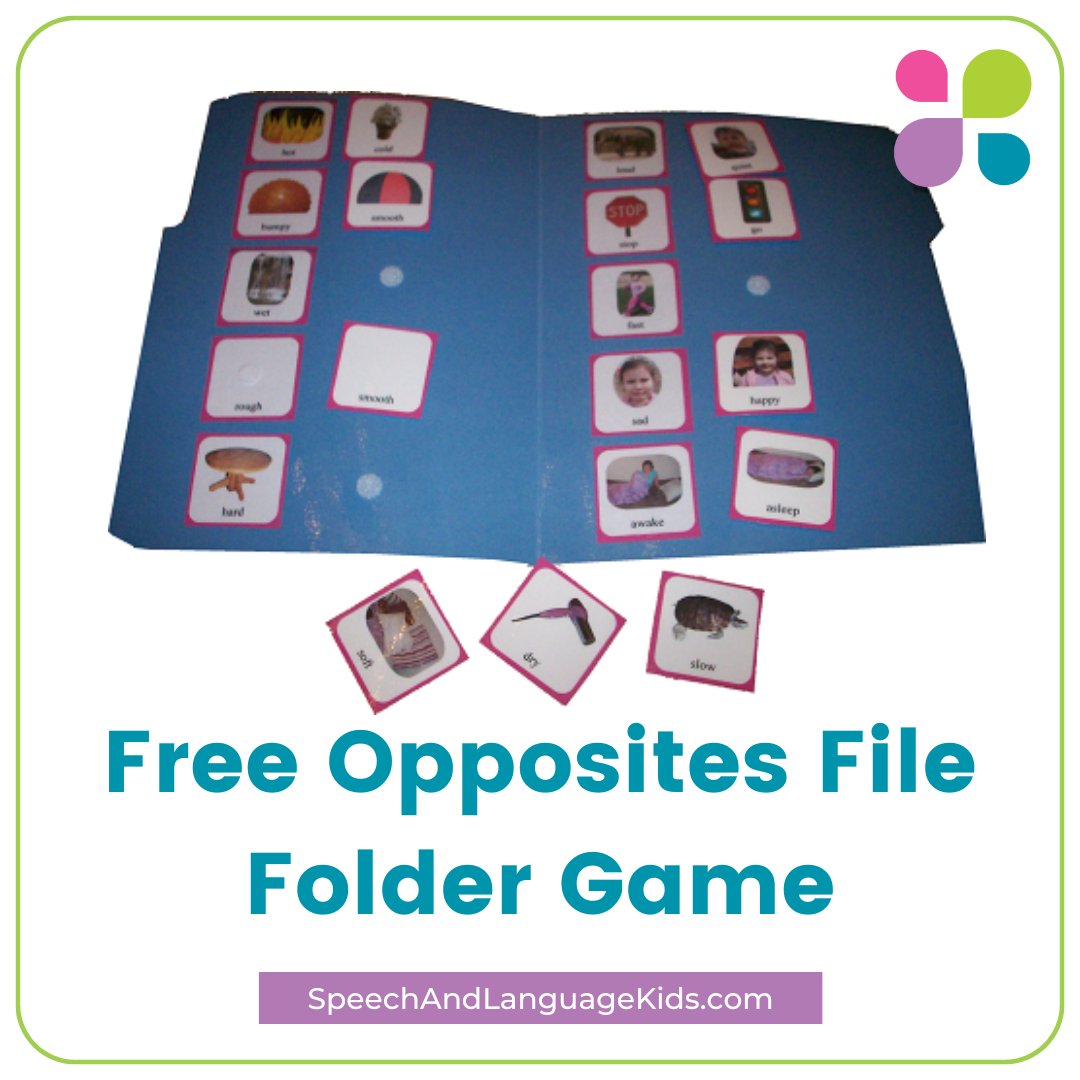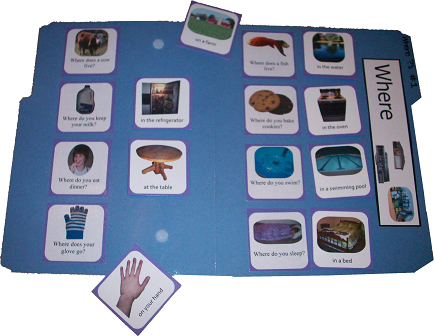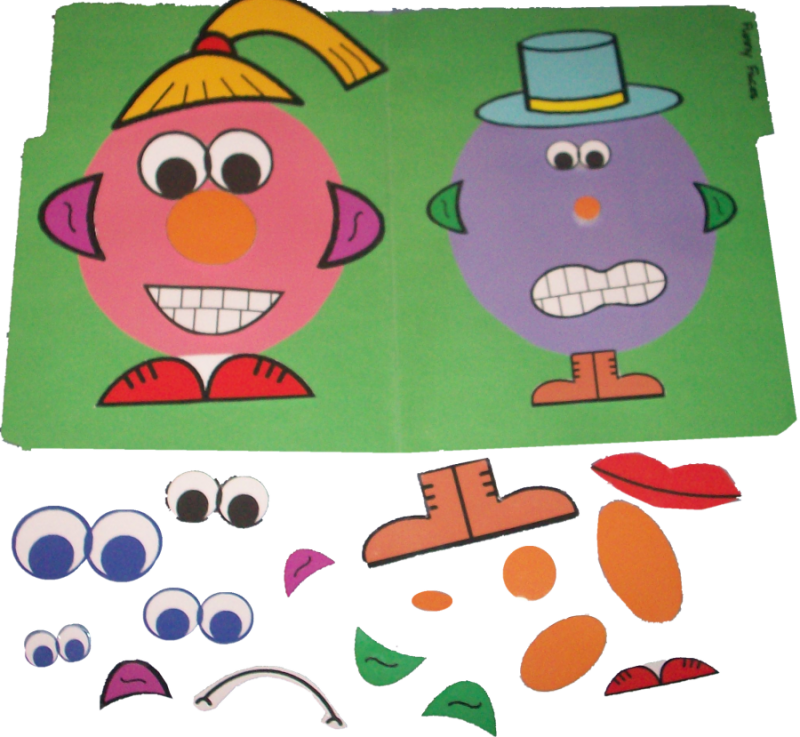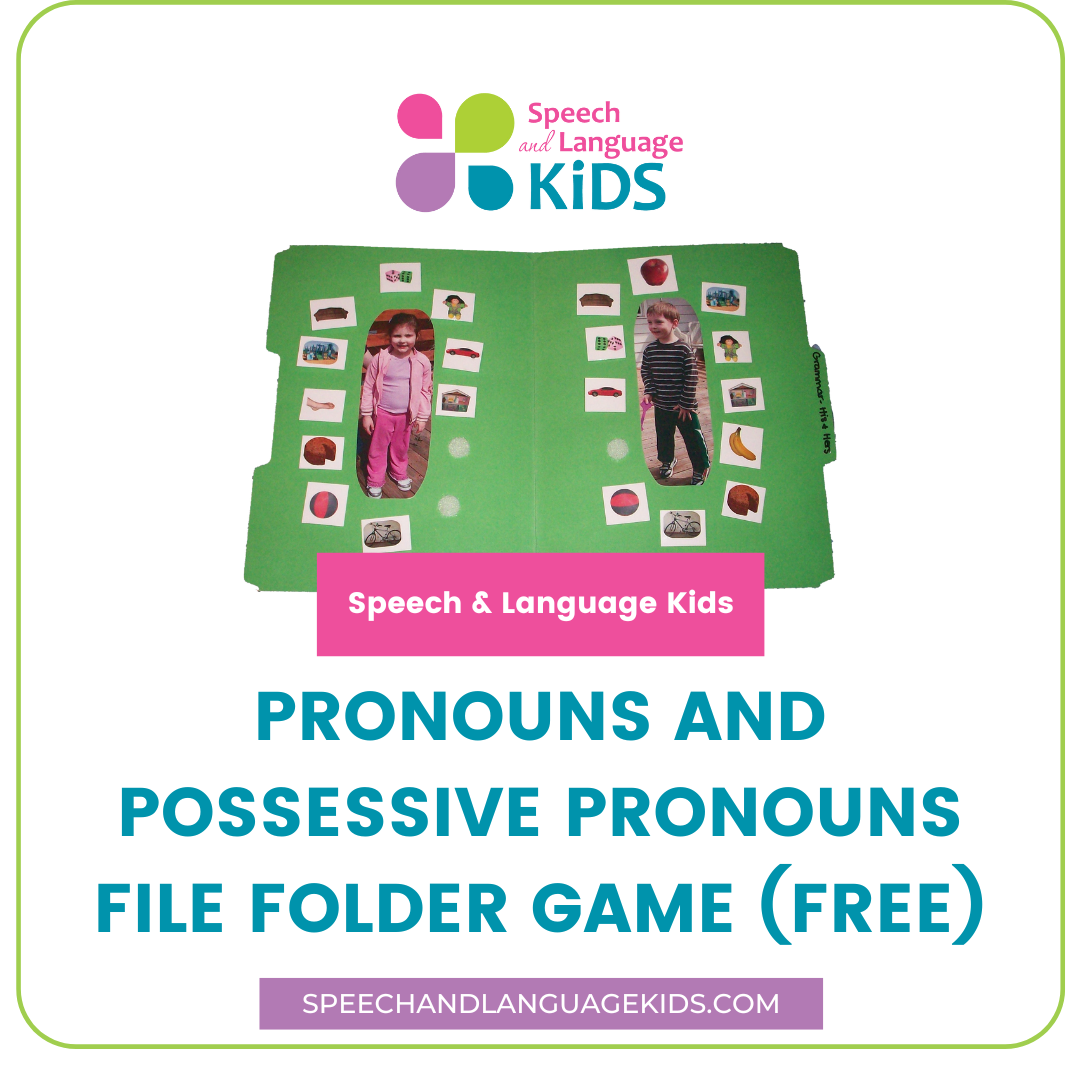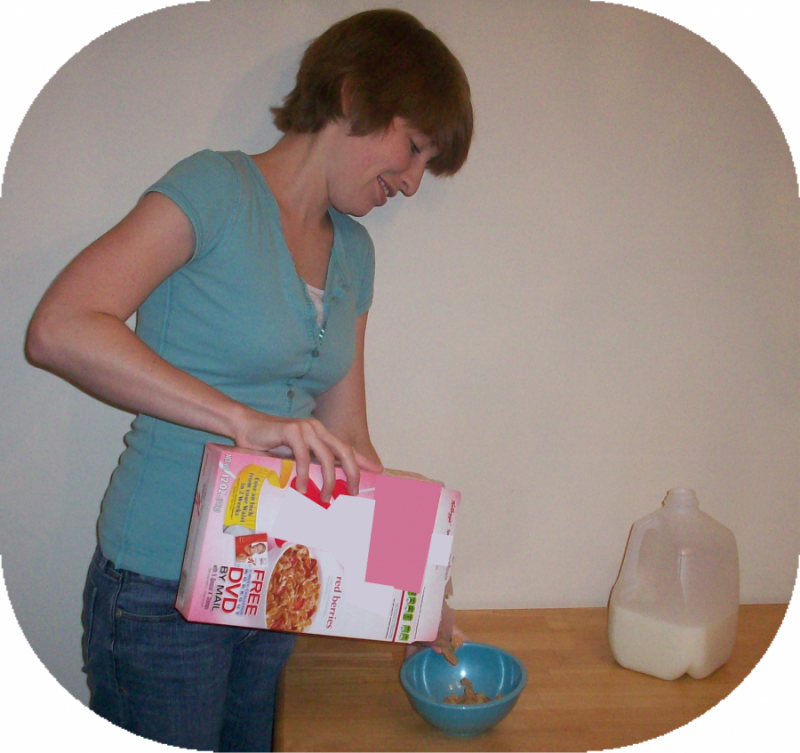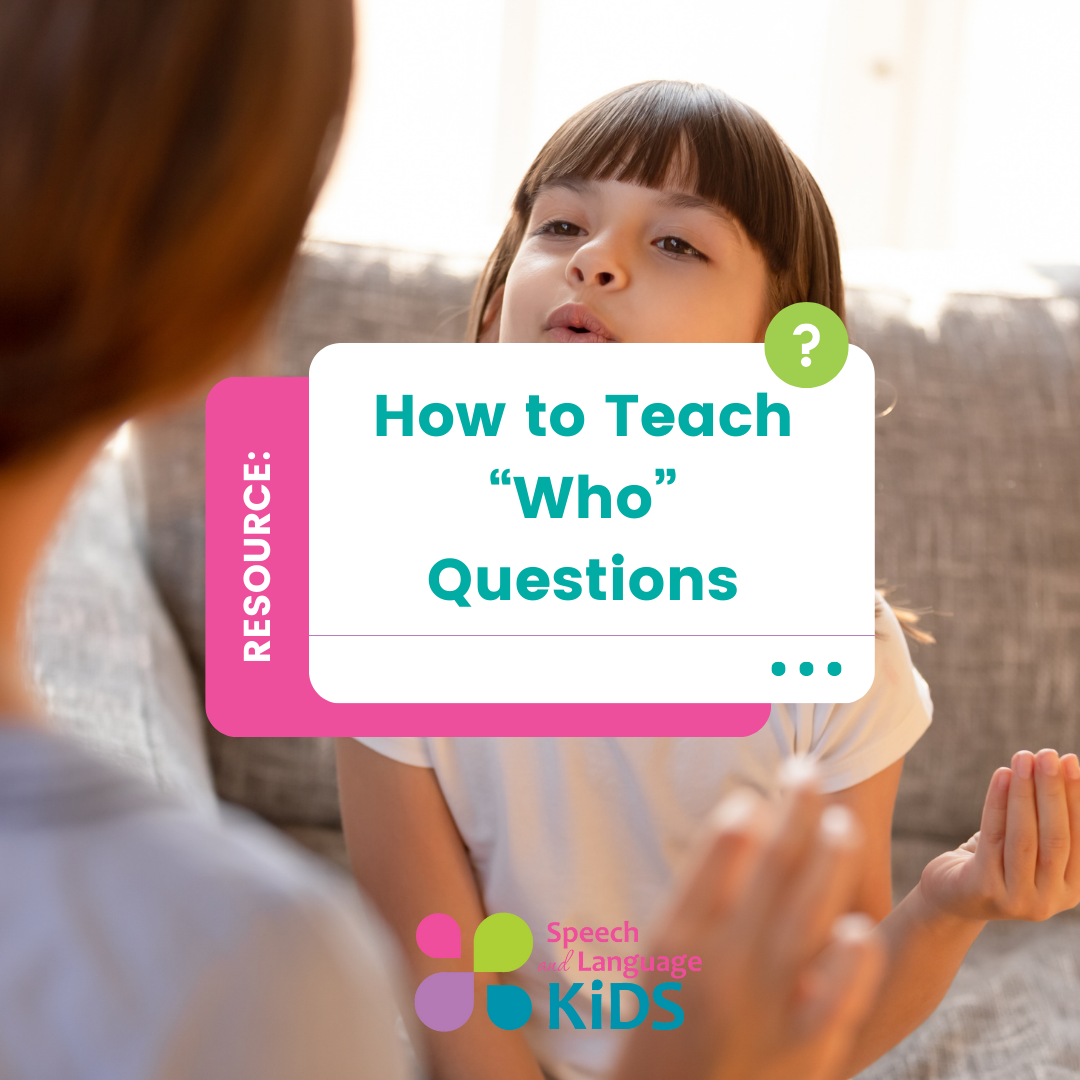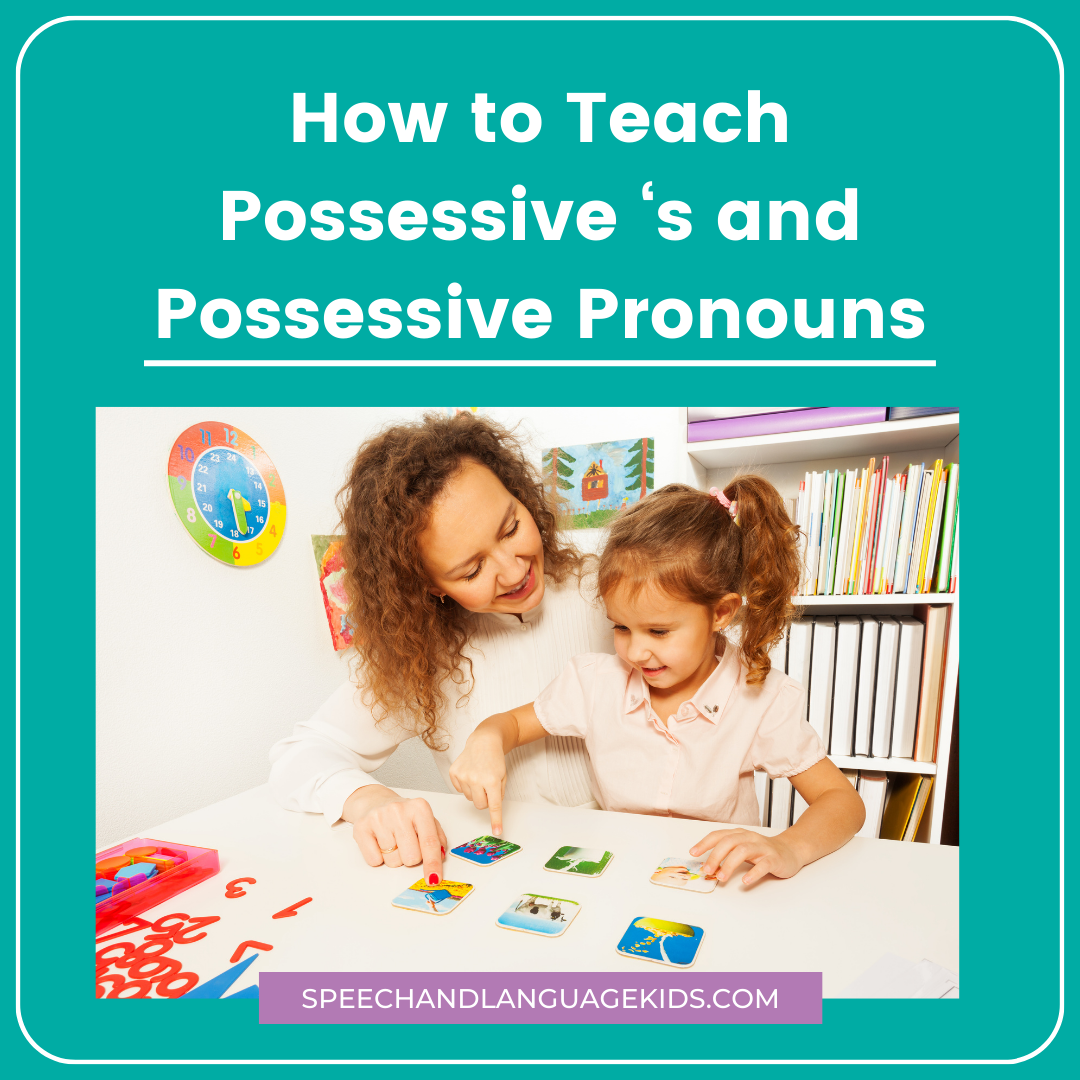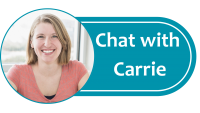Topic:
Resource Type:
Search Results:
Receptive Language Delay: Speech Therapy and Activities
Receptive Language Delay: Speech Therapy and Activities What is Receptive Language Delay? Receptive language delay is a broad diagnosis that simply means that a child has trouble understanding language. This covers a wide variety of language skills and the child may have trouble with all of those skill,
Questions Resource Page
Asking and Answering Questions Children with speech and language delays often have difficulty asking and answering questions appropriately. This is a difficult skill as it requires the child to understand what is being asked, process the question, form an answer, and speak that answer. Or, if the child is
Expressive Language Delay Resource Page
Therapy Activities and Resources for Expressive Language Delays: What is an Expressive Language Delay? Expressive language delay (ELD) is a broad diagnosis that simply means that a child is having trouble using language in some way, shape, or form. Since this diagnosis is so broad, each child with
PECS for Autism | Speech Therapy Phases and Strategies
What are PECS? PECS stands for Picture Exchange Communication System. PECS is a systematic way to teach a child how to communicate with someone else by handing them a picture of what they want. This program was originally designed for children with autism but can be used
Screen Time and Speech/Language Delays
Hang in there, we're going to talk about screen time... Oh man do I hate this subject! Not so much as a speech-language pathologist but as a mom. Actually...as a mom of children during a pandemic. This is NOT an easy subject to write about but I know it's
Teaching How Questions
How to Teach a Child to Answer "How" Questions: Children need to be able to answer a variety of questions to participate in conversations as well as classroom activities. Here are some guides for teaching your child to answer how questions. How Questions Step One: Quantity How Questions The first
Why Questions for Kids | Activities for Speech Therapy or Class
Why Questions for Kids: Speech Therapy for Teaching Children to Answer "Why" Questions Why questions for kids can be very useful. Being able to answer a “why” question can help a child answer questions in class that show knowledge and understanding of information, help him make sense
“What” Questions for Kids | Speech Therapy Activities and Ideas
"What" Questions for Kids: Children with language delays often have difficulty answering questions. When teaching a child to answer questions, it is helpful to teach one question form at a time. This page is all about teaching "what"questions in speech therapy. We will break this skill down
How to Teach Articles: Speech Therapy for “a”, “the”, “some”
How to Teach Articles: Speech Therapy for "a", "the", "some" Children with language delays often leave out articles like “a”, “the”, and “some”. This can make their speech choppy and hard to follow. Your child should be using articles by 4 years of age. Some children start using
When Questions Speech Therapy | Games & Question Lists
Download the Free When Questions Speech Therapy Game Join the Hub to Access (Free Trial) When Questions Speech Therapy Children with language delays often have difficulty answering questions. When teaching a child to answer questions, it is helpful to
Vocabulary Game: What Do You See?
Click here to download Vocabulary Game: What Do You See? for free! Vocabulary Game Short Description: This file folder game contains many objects all scattered across the pages of a file. There are instructions for activities that will help you and your child work on a variety of
Stimming and Hand Flapping when Excited – How to Help
Buy Now Stimming and Hand Flapping When Excited - What is it? Is it a problem if a child is stimming and hand flapping when excited? Sometimes, children will flap their hands or engaging in self-stimulatory behaviors (also called “stimming”)
Opposite Game: Free Printable PDF for Speech Therapy or Classroom
Opposite Game: Free Printable PDF for Speech Therapy or Classroom Children with language delays or vocabulary challenges may struggle to understand and use opposites. This fun, interactive file folder game will give you everything you need to practice opposites. Great for use in speech therapy or as a
Where Questions File Folder Game
Click here to download the Where Questions File Folder Game for free Where Questions Game Short Description: Print out these where questions and glue them to a file folder. Then, attach velcro to the answer so your child can match the questions with the answers over and over
Funny Faces Grammar Games
Click here to download the Funny Faces File Folder Game for free! Grammar Games Short Description: Check out this fantastic file folder grammar games set where you and your child will make funny faces while working on speech and language skills. As soon as your purchase is complete,
Pronoun Game: Free Printable for Teaching “he, she, his, her”
Pronoun Game: Free Printable for Teaching "he, she, his, her" When a child is struggling to learn how to use grammatical markers, like pronouns and possessive pronouns, we can help with language boosting games and activities! This game provides several different ways to practice pronouns and possessive pronouns
Social Stories for Children with Language Delays
Hello everybody! Today’s post is inspired by a reader who was wondering how she can use social stories with her autistic son to help him understand basic social situations. Here are a few ideas of how you can use social stories with your child as well. These social stories
Who Questions for Kids: Speech Therapy Activities
Who Questions for Kids: How to Teach Who Questions in Speech Therapy When a child is learning to answer wh- questions, "who" questions are learned fairly early on. Here's how I teach a child to answer "who" questions: How to Teach Who Questions:
How to Teach Possessive ‘s and Possessive Pronouns
How to Teach Possessive 's and Possessive Pronouns to Children: The possessive 's is what we add to a noun to indicate possession. We can use it to say "Sally's ball", "Mommy's cup" or "the school's mascot". We can also indicate possession by using possessive pronouns like "his",
How Do You Teach Past Tense Verbs to Kids?
Many children with language delays have difficulty using the past tense of verbs. If they want to talk about something that already happened, they will use the present tense or may mis-form the word to create regular/simple past tense or irregular past tense. This can make

